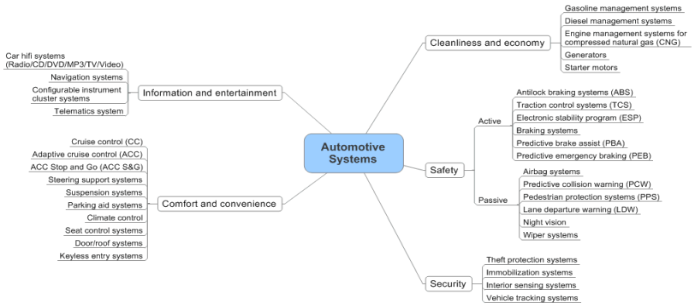| Apple, Google, and the Future of the Car Industry Page 3 |
"GM asked a company to develop their navigation system. It took them 18 months to develop something new – it's an
expensive process and would then be expensive for the customers. The Android community contains up to 20 navigation
systems at the moment, it can very easily be adapted for a bigger screen for the car. Suddenly you already have these
developments, that cost is so much lower and quicker."
Other industries would love to get their hands on car data, one obvious one being insurance companies.
"Very soon we will have insurance setting up deals with customers to gain information on how they drive," says
Henfridsson. "You would be able to have lower fees for those that drive carefully, but at the point you speed you would lose
that deal, it would be personalised to each individual."
"This will cut across industries, because digitalising the car means it becomes another sensor within a huge network. Google
might not want to sell cars, but it definitely sees them as another source of information that they can use to become even
better in digitising the world. Eh how is the traffic situation in Los Angeles? - Search Google cars and find out?
"Also, in the Android world developments are being pushed out and customers are testing it for you. The car industry is
totally different where it has to be perfect for the customer before it is on the market, but releasing a new patch for the
software doesn't cost anything."
It could be the end of all those costly recalls to adjust the steering system or throttle, just send out a system update and it
would be done - though repairs done digitally could have a serious impact on car dealerships, a relationship that car
manufacturers would be loathe to hurt. And talk of app developers being allowed into the engine, suspension, and brakes of
a car must send many car executives into convulsions. Who is liable if something goes wrong if there is a crash? Is the
insurance company going to turn to the app developer or the car manufacturer?
Falkas reveals how at Saab they planned to open the engine management system to developers in stages.
"You could select certain sensors and data to publish as 'read only'" says Falkas. "The next step for selected third companies
with whom the car manufacturer is in partnership is to give them the ability to write into the system, as you would still have
liability. There would then be possibilities to have a bundle for something like additional horsepower, it would be a gradual
process."
Liability is one issue that has to be resolved, but Henfridsson is sure it will be and believes whoever moves first to totally
open up their car will have a big advantage. The big worry for the car manufacturers is that if they don't do it somebody
else will, somebody of the scale of Google or Apple. They could make a standard car and then send it out as an open
platform vehicle, transforming the industry and potentially killing off some big manufacturers.
"An app that can tune your engine could have been done 10 years ago," says Henfridsson. "At the point GM or Audi allows
third-party developers to design apps to tune their engine there would be hundreds of them. They may not allow access to
the braking system, engine, or power train immediately, but it will soon come.
There is a middle ground, where you can have 60 or 70 trusted vendors. Then it is a different business, the car will become
a platform. Why not have other people innovate on your platform? That is what you want to be, a platform owner like
Facebook. It is very old fashioned to sell a whole product these days.
"This is coming, the car manufacturers know it and they can't stop it. We will see a totally new car industry when digital
takes over. It will change everything, there will be new brands that might be connected to Google rather than a car
manufacturer. It is a do-or-die issue for the car industry." (Back to Links Page)
